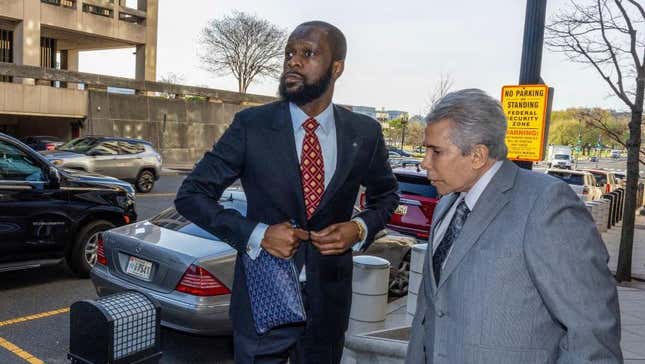
Convicted Fugees rapper Prakazrel “Pras” Michél said his former lawyer bungled his trial with a closing argument written by AI. It’s another bizarre twist in a sprawling case that saw the hip hop icon charged with conspiracy, acting as a foreign agent of China, and illegal attempts to influence two US presidential elections. Michél faces up to 20 years in federal prison.
A brief filed by Michél’s defense team on Monday argues his former lawyer David Kenner blew “the single most important portion” of the case with an untested AI tool. “Kenner used an experimental AI program to write his closing argument, which made frivolous arguments, conflated the schemes, and failed to highlight key weaknesses in the Government’s case,” the brief says.
According to the brief, Kenner harnessed a tool called EyeLevel.AI to put together an inadequate closing argument that cost Michél the trial. Worse, Michél’s defense claims Kenner had an “undisclosed financial stake” in a company called CaseFile Connect, a partner of EyeLevel, which pushed him to use the tool at Michél’s expense.
Neil Katz, Cofounder and Chief Operating Officer of EyeLevel.AI, told Gizmodo that Michél’s briefing is a “work of creative fiction” that essentially uses artificial intelligence as a boogeyman to argue for a retrial. Kenner and CaseFile Connect did not immediately respond to requests for comment.
“In this case, the AI was trained specifically on the transcripts of the trial and produced research and analysis for the legal team in a revolutionary way, based solely on the facts of the case as presented at trial,” Katz said. “We take issue with this idea that somehow our technology produced inaccurate or incorrect or unuseful information for the legal team.”
In a press release, citing the case as “the first use of generative AI in a federal trial,” EyeLevel.AI quoted Kenner celebrating its tools. “This is an absolute game changer for complex litigation. The system turned hours or days of legal work into seconds. This is a look into the future of how cases will be conducted,” Kenner said in the press release.
“The allegation that Kenner has some secret financial interest in our company is categorically untrue,” Katz said. “We have no financial relationship with Kenner Law or CaseFile Connect other than the fact that they hired our company to help the defense team in the trial.”
Michél’s case stems from a relationship with Malaysian billionaire Jho Low, who is currently a fugitive. During the trial, Michél said Low paid him $20 million to help secure a photo with then-president Obama, but claimed that the work was above board. Prosecutors argued that Michél was part of an illegal scheme to influence Obama’s election, and later curry favor with the Trump administration, without registering as a foreign agent.
This isn’t the first time the alleged use of AI has called a legal proceeding into question. In June, two New York lawyers were fined $5,000 for using ChatGPT to write bogus legal documents which included made-up quotes and cited imaginary cases.
The brief on behalf of Michél argues that other problems with the trial, including that the judge disclosed to the jury that she had already concluded he conspired to commit some of the crimes alleged by the government. Michél is currently seeking a retrial.